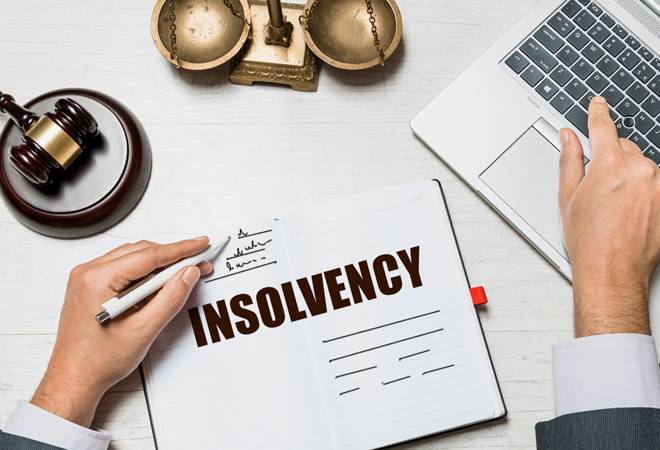The Basic Principles Of Insolvency Practitioner
The Basic Principles Of Insolvency Practitioner
Blog Article
Insolvency Practitioner - Questions
Table of ContentsHow Insolvency Practitioner can Save You Time, Stress, and Money.How Insolvency Practitioner can Save You Time, Stress, and Money.A Biased View of Insolvency PractitionerGetting The Insolvency Practitioner To WorkFascination About Insolvency PractitionerFascination About Insolvency PractitionerAn Unbiased View of Insolvency Practitioner
Bankruptcy is when liabilities are more than the value of the business, or when a debtor can not pay the debts they owe. A firm can become bankrupt due to a variety of scenarios that cause inadequate capital. When confronted with insolvency, a business or individual can call creditors directly and restructure financial debts to pay them off.Insolvency can result in bankruptcy process, in which lawful activity will certainly be taken versus the insolvent person or entity, and possessions may be sold off to settle exceptional debts. Business proprietors may speak to financial institutions straight and restructure financial obligations into more convenient installments. Financial institutions are usually open to this method because they desire to be settled and prevent losses, even if the settlement gets on a postponed routine.
The smart Trick of Insolvency Practitioner That Nobody is Discussing
The owner creates a proposal outlining how the financial debt might be reorganized using cost decreases or various other prepare for assistance. The proposition reveals financial institutions just how the service might create sufficient capital for lucrative operations while paying its debts. Generally, a forgiven debt might be taken into consideration earnings by the Internal Income Solution (IRS).

Insolvency Practitioner for Beginners
When operations cease, so does the company's revenue (Insolvency Practitioner). Some companies end up being bankrupt because their items or services don't evolve to fit consumers' altering demands.
Expenditures go beyond incomes and expenses remain unpaid. Cash-flow bankruptcy takes place when a company has the properties to cover their financial obligations however they are in the wrong type, such as real estate rather of liquid funds. Balance-sheet bankruptcy, on the various other hand, shows a lack of properties in any type of kind to cover debts.
The internal revenue service states that a person is insolvent when the total liabilities exceed overall properties. A insolvency, on the other hand, is a real court order that portrays exactly how a financially troubled person or business will certainly pay off their financial institutions, or how they will sell their possessions in order to make the settlements.
Not known Facts About Insolvency Practitioner
:max_bytes(150000):strip_icc()/insolvency.asp-final-15cb186ac9544f8a9b12416af2478ad8.jpg)
Financial debt combination is when you combine several financings into one brand-new lending, frequently to accomplish far better terms. Insolvency is not the like insolvency, although a business that has actually become insolvent may apply for personal bankruptcy. Bankruptcy is the state of not having the ability to pay your responsibilities while insolvency is a legal process to discharge your debts.
Understanding the aspects that can bring about insolvency, such as overspending, can help you avoid insolvency and its effects.
All About Insolvency Practitioner
It is well recognized that supervisors and officers of firms (and managers of minimal liability business) owe fiduciary tasks to their organizations and their shareholders (or participants). These fiduciary commitments are defined by state statutes and, though there are variations from one company website state to another, they normally consist of a duty of loyalty and a task of care.
The obligation of care calls for supervisors and officers to exercise diligence, to make informed decisions, and to act in good confidence to ensure that their actions are in the very best rate of interest of the firm. Though beyond the scope of this discussion, some states enable these duties to be limited either by so noting in the business files or abiding by various other needs.
9 Simple Techniques For Insolvency Practitioner
Many states specify bankruptcy in 2 means( 1) when a business's responsibilities end up being more than the sum of its properties or (2) when the company comes to be not able to pay its financial obligations as they come to be dueand embrace both meanings (Insolvency Practitioner). The shift in duties happens since when a company is bankrupt, there is no value in the company beyond that owed to the company's lenders to ensure that the equity owners no longer have an economic risk in the company
Beware regarding offering investors favoritism at the expenditure of creditors (e.g., licensing and funding a returns or a stock redemption). Be cautious regarding favoritism in between classes of shareholders. Clear up efforts to find out all the facts before taking a particular training course of activity; directors must truly think that any type of decisions made are in the finest passions of the firm in its entirety (i.e., choices will be reviewed in knowledge in light of the impact of such activities on the company).
In any type of personal bankruptcy or insolvency case, settlements made to specific financial institutions at the expense of various other lenders can be clawed back, particularly if there is some link between the firm and the creditor. Consider suggesting at an annual investor meeting (or any type of various other conference of investors) a resolution verifying that all previous company choices and actions taken by the directors and police officers of the corporation were taken in excellent faith after a workout of reasonable care.
An Unbiased View of Insolvency Practitioner
Completely divulge any kind of personal or service partnerships with events on the other side of purchases including the firm to avoid the look of a problem of passion. In examining potential fund raising purchases or a sale read this of possessions of the troubled corporation, realize that these purchases might be looked at later in light of any succeeding development of directors' Extra resources fiduciary obligations to consist of lenders.
Report this page